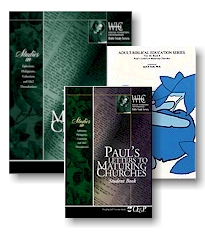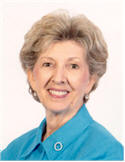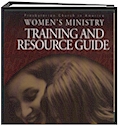Biblical Foundations for Womanhood Bible Study Series
click image to view/order from PCA CE Bookstore

Christian Education and Publications announces a Bible Study Series for women which will:
- Teach women to study Scripture from a covenantal perspective.
- Use the objectives and concepts of Biblical Foundations for Womanhood to help women apply Scripture to life.
These studies will help a women’s ministry accomplish the objectives of Biblical Foundations for Womanhood:
- To teach women a biblical perspective of their relationships with Christ, family, and church.
- To challenge women to fulfill their helper design.
- To help women examine the implications of the covenant in their relationships.
- To train women to cultivate community by obeying the Titus mandate to nurture one another for God’s glory.
- To train women to be channels of compassion by obeying the Micah mandate.
- To equip women for leadership roles in the women’s ministry of the church.
This Bible Study series recognizes that a women’s Bible study does not stand alone. It is to be a part of the entire discipleship ministry of a local church. Therefore, this study does not attempt to duplicate or replace other aspects of the educational ministry of the church, but rather to focus on the specific call to women to teach other women a biblical perspective of womanhood. Women encouraging and equipping women is the covenant way. It is a part of healthy church life. The apostle Paul wrote to the young preacher Titus:
You must teach what is in accord with sound doctrine. Teach the older men to be temperate, worthy of respect, self-controlled, and sound in faith, in love and in endurance. Likewise, teach the older women to be reverent in the way they live, not to be slanderers or addicted to much wine, but to teach what is good. Then they can train the younger women to love their husbands and children, to be self-controlled and pure, to be busy at home, to be kind, and to be subject to their husbands, so that no one will malign the word of God. Titus 2:1-5
Bible Studies
click here to view whole series on PCA Bookstore website
or view individual studies by clicking links below.
|
The Formation of God’s People, Israel
View Introduction and Chapter 1(as PDF)
|
|
|
The Gospel of Matthew:
View Introduction and Chapter 1 (as PDF)
|
|
|
The Gospels of Matthew:
View Introduction and Chapter 1 (as PDF)
|
|
|
Paul’s Letters to Maturing Churches:
View Introduction and Chapter 1 (as PDF)
|
|
|
Pastoral Letters:
View Introducation and Chapter 1 (as PDF)
|
For each study there is a leader’s packet and a student book. The leader’s packet contains everything the teacher needs to prepare for the class: a leader’s guide, a student book, and a copy of the corresponding volume from The Adult Biblical Education Series by Dr. Jack Scott, which provides  the background commentary for the Bible study leader. The study is divided into twelve lessons. Two suggested teaching plans give the teacher the option of covering the book in one or two quarters. Lessons are adaptable to classes of different lengths.
the background commentary for the Bible study leader. The study is divided into twelve lessons. Two suggested teaching plans give the teacher the option of covering the book in one or two quarters. Lessons are adaptable to classes of different lengths.
Each student book includes preparation worksheets to help students engage each lesson. These short, daily assignments are well suited to devotional time during the week or to class discussion groups. The interactive classroom format will help to convey the covenant truths covered in each lesson.
The Foundations for Biblical Womanhood books are the resources for the application of Scripture into life.
 By: Susan Hunt. Susan, a wife, mother and grandmother, is a graduate of the University of South Carolina and Columbia Theological Seminary. Susan has served 16 years as Director of Women’s Ministry in the PCA and now serves as Consultant for PCA Christian Education and Publications Women in the Church ministry. She is a noted author in both women and children’s ministry. Publications include: By Design, Spiritual Mothering, Heirs of the Covenant, Big Truths for Little Kids.
By: Susan Hunt. Susan, a wife, mother and grandmother, is a graduate of the University of South Carolina and Columbia Theological Seminary. Susan has served 16 years as Director of Women’s Ministry in the PCA and now serves as Consultant for PCA Christian Education and Publications Women in the Church ministry. She is a noted author in both women and children’s ministry. Publications include: By Design, Spiritual Mothering, Heirs of the Covenant, Big Truths for Little Kids.

